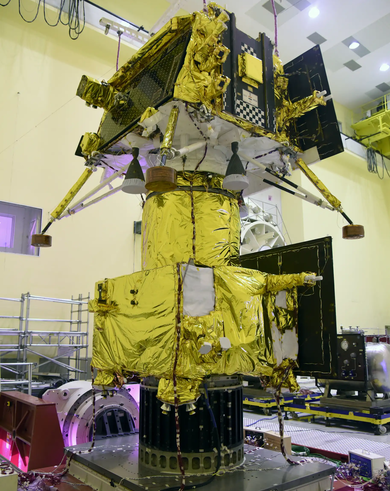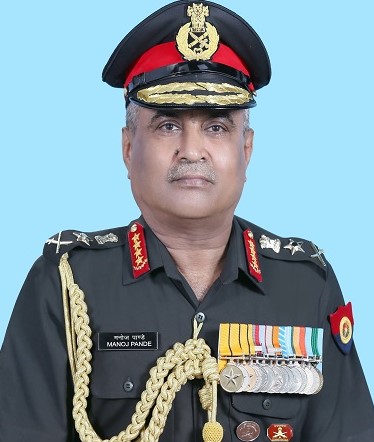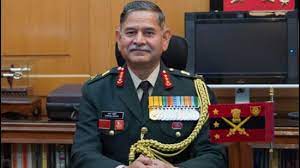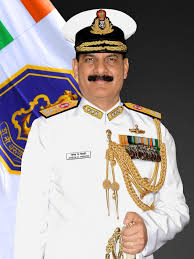ISRO is pursuing bilateral and multilateral relations with international space agencies and space related bodies with the aim of building and strengthening existing ties between countries; taking up new scientific and technological challenges; refining space policies and defining international frameworks for exploitation and utilization of outer space for peaceful purposes.
Internationally India is viewed by space faring nations as an emerging space power, capable of achieving its goals in a more cost effective and time-efficient manner.
Specifically, the developing countries look to India for assistance in building up their capabilities to derive benefits of space technology.
The scope of international cooperation has become wider and diverse, as ISRO has made tremendous progress in recent time.
Formal cooperative arrangements in the form of either Agreements or Memoranda of Understanding (MoU) or Framework Agreements have been signed with:-
- Afghanistan
- Algeria
- Argentina
- Armenia
- Australia
- Bahrain
- Bangladesh
- Bhutan
- Bolivia
- Brazil
- Brunei Darussalam
- Bulgaria
- Canada
- Chile
- China
- Egypt
- Finland
- France
- Germany
- Hungary
- Indonesia
- Israel
- Italy
- Japan
- Kazakhstan
- Kuwait
- Maldives
- Mauritius
- Mexico
- Mongolia
- Morocco
- Myanmar
- Nepal
- Nigeria
- Norway
- Peru
- Portugal
- Republic of Korea
- Russia
- Sao-Tome & Principe
- Saudi Arabia
- Singapore
- South Africa
- Spain
- Sultanate of Oman
- Sri Lanka
- Sweden
- Syria
- Tajikistan
- Thailand
- The Netherlands
- Tunisia
- Ukraine
- United Arab Emirates
- United Kingdom
- United States of America
- Uzbekistan
- Venezuela
- Vietnam
Also formal cooperative instruments have been signed with international multilateral bodies like European Centre for Medium Range Weather Forecasts (ECMWF), European Commission, European Organization for the Exploitation of Meteorological Satellites (EUMETSAT), European Space Agency (ESA) and South Asian Association for Regional Cooperation (SAARC).
Highlights of a few achievements through international cooperation are as under:-
Chandrayaan-1
ISRO’s maiden mission to Moon, the Chandrayaan-1, has been an exemplary example of international cooperation with its international payloads. It has also earned several national and international laurels and was instrumental in the ISRO-NASA joint discovery of water molecules on the moon surface, unattained by any of the previous missions of such nature.
Megha-Tropiques
The Indo-French joint satellite mission called MEGHA-TROPIQUES was launched in 2011 for the study of the tropical atmosphere and climate related to aspects such as monsoons, cyclones, etc. The data products from this satellite are made available to the international Scientific community.
Saral
Another joint mission with France, named SARAL (Satellite for ALTIKA and ARGOS) for studying ocean from space using altimetry was successfully launched on February 25, 2013. CNES provided a radar altimeter instrument called ALTIKA and an onboard relay instrument for the international ARGOS data collection system, while, ISRO provided the satellite platform, launch and operations for this joint mission. The data from the altimeter is currently made available to global scientific community.
Ongoing and future activities
ISRO and NASA are realizing a joint satellite mission called NISAR (NASA ISRO Synthetic Aperture Radar) for earth science studies. As part of the Indo-French cooperation, ISRO and CNES have completed the feasibility study on realizing an earth observation satellite mission with thermal infrared imager, named as TRISHNA. ISRO and JAXA scientists are conducting the feasibility study to realize a joint satellite mission to explore the moon’s polar region.
As part of ISRO’s prestigious Gaganyaan programme, the cooperation opportunities with countries and space agencies having expertise in human space flight are being explored. The cooperation activities are focused in astronaut training, life support systems, radiation shielding solutions etc.
Unnati
ISRO has announced an 8-week capacity building programme on nano satellite development, named as UNNATI (UNispace Nanosatellite Assembly & Training by ISRO) as an initiative of UNISPACE+50 (the 50th Anniversary of the first United Nations conference on the exploration and peaceful uses of outer space) . The programme will be conducted at UR Rao Satellite Centre (URSC) of ISRO at Bengaluru for three years. In the first batch, 30 participants from 17 countries were successfully trained during Jan 15 – Mar 15, 2019. The second batch was conducted during Oct 15 – Dec 15, 2019 and had 30 participants from 16 countries.
Participation in international bodies in the field of Space
India continues to play active role in deliberation on Scientific and Technical and Legal sub-committees of the United Nations Committee on the Peaceful Uses of Outer Space (UN-COPUOS). India also plays major role in other multilateral fora including United Nations Economic and Social Commission for Asia and the Pacific (UN-ESCAP), International COSPAS-SARSAT system for search and rescue operations, International Astronautical Federation (IAF), International Academy of Astronautics (IAA), International Institute of Space Law (IISL), Committee on Earth Observation Satellites (CEOS), Committee on Space Research (COSPAR), Inter Agency Debris Coordination Committee (IADC), Space Frequency Coordination Group (SFCG), Coordinating Group on Meteorological Satellites (CGMS),International Space Exploration Coordination Group (ISECG), International Space University (ISU), Asian Association for Remote Sensing (AARS), International Society for Photogrammetry and Remote Sensing (ISPRS), etc.
Internationally, ISRO plays active role in sharing its expertise and satellite data for the management of natural disasters through various multi-agency bodies like International Charter for Space and Major Disasters, Sentinel Asia and UNSPIDER.
The Centre for Space Science and Technology Education for Asia and the Pacific (CSSTE-AP) has been set up in India under the initiative of UN Office for Outer Space Affairs (UN OOSA) and offers nine month post graduate diploma courses in Remote Sensing and Geographic Information Systems (every year), Satellite Communication (every alternate year), Satellite Meteorology and Global Climate (every alternate year) and Space and Atmospheric Science (every alternate year). After completion of the course, students have opportunity to carry out research in their own country for one year leading finally to the award of a Master’s Degree from Andhra University.
The Indian Institute of remote sensing IIRS Runs few courses that are affiliated Internationally.
https://www.iirs.gov.in/internationalcollaborations
In response to the UN General Assembly Resolution (45/72 of 11th December, 1990) endorsing the recommendations of UNISPACE-82, the United Nations Office of Outer Space Affairs (UN-OOSA) prepared a project document (A/AC.105/534) envisaging the establishment of Centres for Space Science and Technology Education in the developing countries. In 1994, a UN team conducted an evaluation mission of six countries in Asia-Pacific region. Based on the report of the evaluation mission, UN-OOSA notified India as the host country for establishment of Centre for Space Science and Technology Education in Asia and the Pacific (CSSTEAP).
Source: https://www.isro.gov.in/InternationalCoOperation.html





